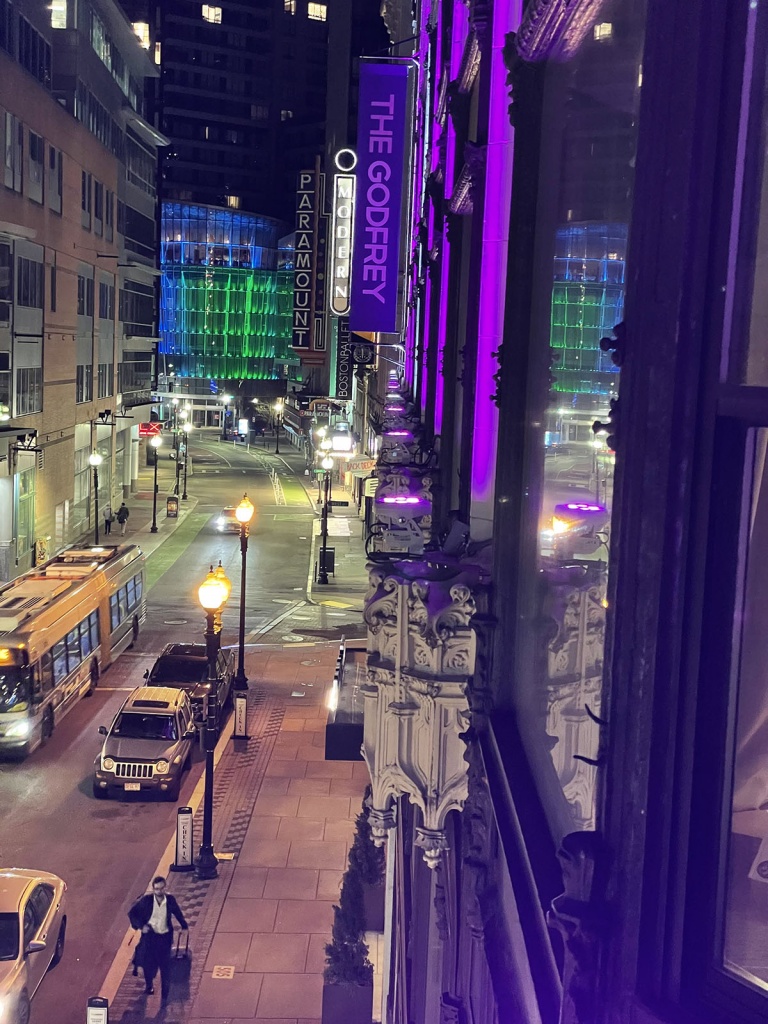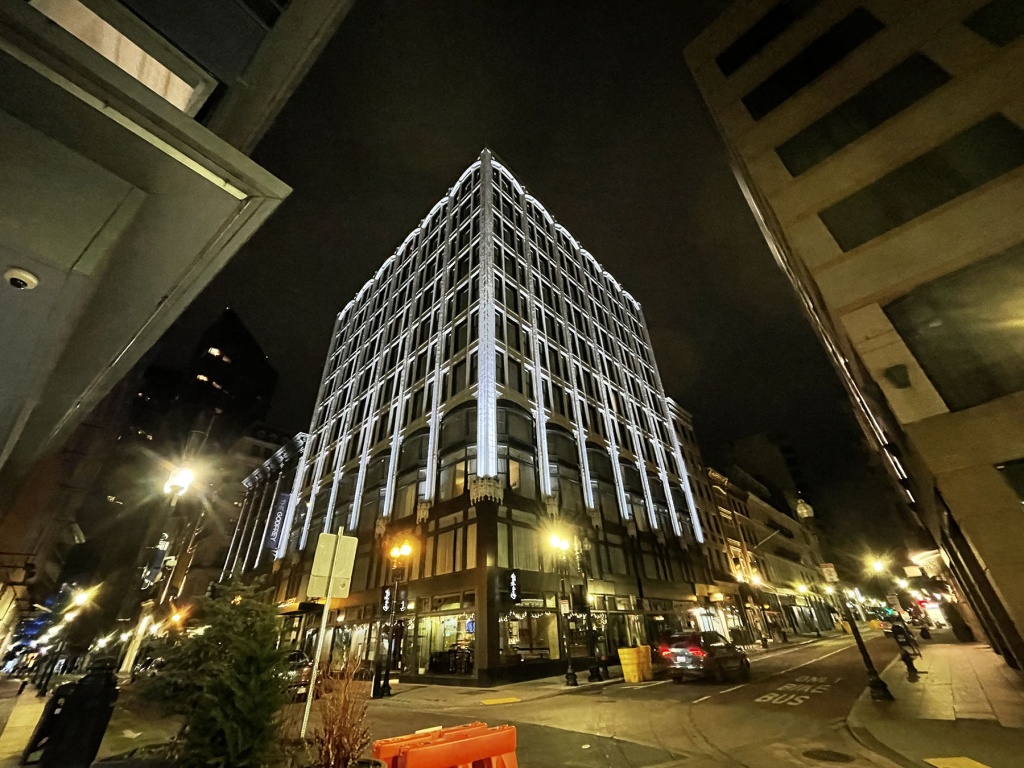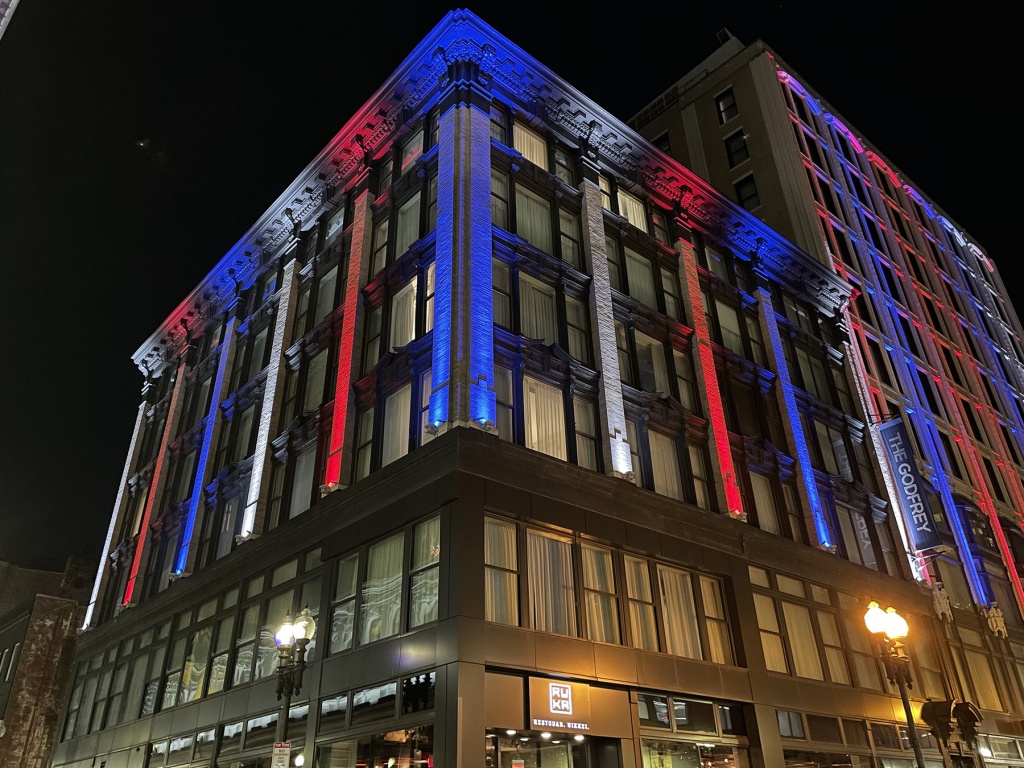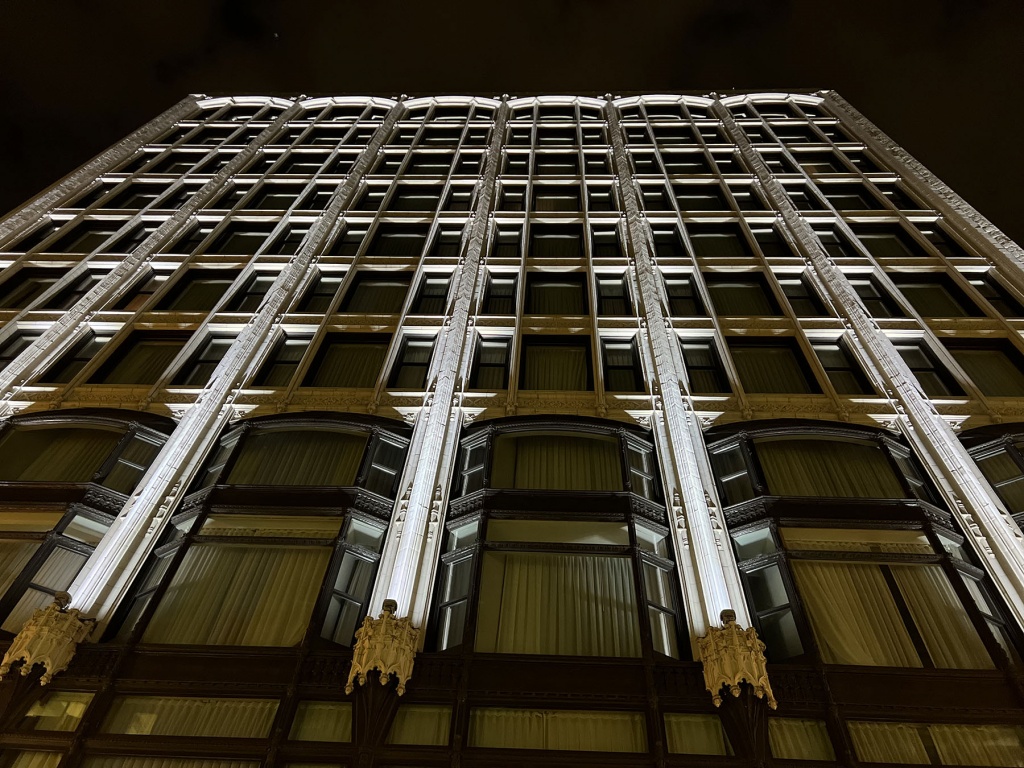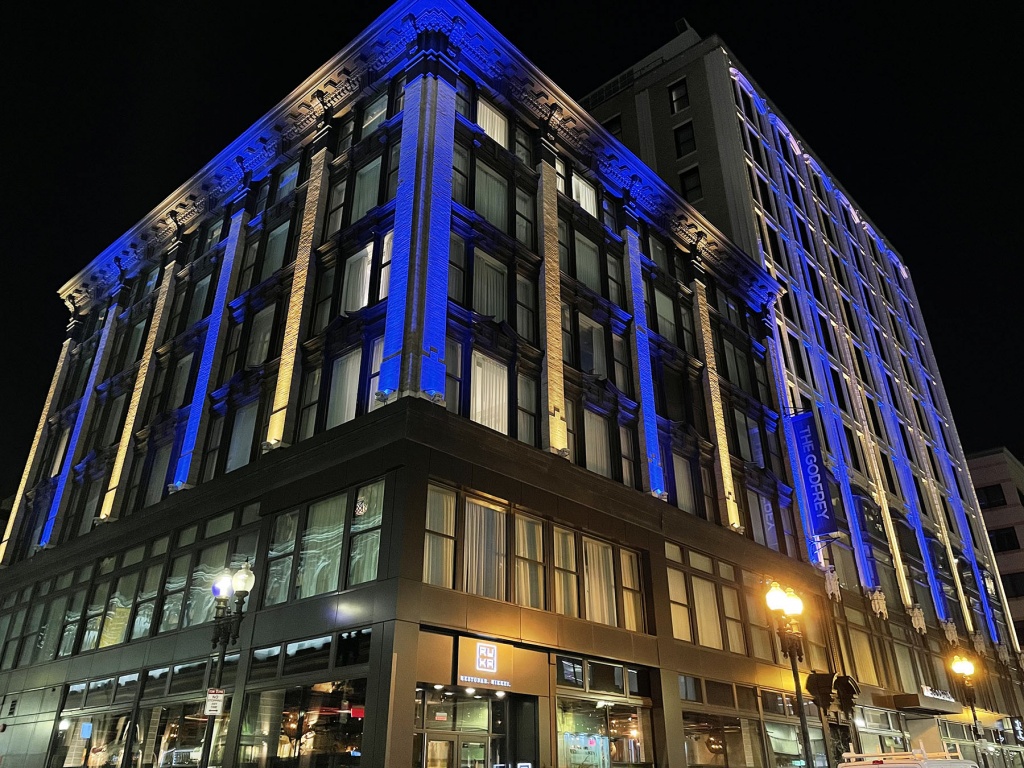
Anolis for The Godfrey Hotel - New Lighting Scheme
A spectacular new Anolis external lighting scheme is illuminating the facades of The Godfrey Hotel in Boston, picking out the detail and architectural intricacies of the impressive former Blake & Armory Building, a historic commercial site at the corner of Temple Place and Washington Street in the city’s Downtown Crossing pedestrian shopping zone.
Ron Kuszmar of PORT led the project and explained that the hotel’s owners brought them onboard to specify, design and install a new LED lighting scheme that would highlight the building in all its glory and replace the previous system dating back to when The Godfrey originally opened in 2016.
Based in Seabrook, New Hampshire, an hour out of Boston, PORT is well known as a theatrical, stage and architectural lighting and control specialist. The client found them via a Google search and was impressed with some other commercial lighting installations completed by PORT around the city.
The hotel is a combination of two buildings which were listed on the National Register of Historic Buildings in 2014. The 11-story Blake & Armory was designed by well-known Boston architect Arthur Hunnewell Bowditch, and the two buildings were constructed in two phases between 1904 and 1908.
They vary slightly architecturally, but both feature large windows and quirky neo-Gothic details. Early tenants on the upper-level offices were mainly associated with the garment and fabric trade, while the lower floors housed different retail operations. In the early 20th century, the Downtown Crossing was Boston’s most chic shopping district.
Originally, The Godfrey Hotel lighting scheme was made up of flood type fixtures that looked messy and did not light up the building very efficiently, and key to the client brief received by Ron was that they wanted the sharp lines of the architecture to stand out … and they wanted to be able to colour change to mark certain occasions.
They also didn’t want additional electrical conduit running across the facades, so the fixtures had to utilise the existing two circuits of lighting power and the mounting infrastructure, so wireless control was crucial in the choice of fixtures, and they had to fit onto the existing bracketry of the previous system.
After extensive onsite tests with various Anolis products, Ron proposed a choice of three different schemes, and from these … the ArcSource Outdoor 24 MC Integral fixture was chosen, fitted with Lumen Radio CRMX modules for wireless DMX control.
“When we realized that 25 x ArcSource 24s had the power and punch to light the building, we also knew we would not have to worry about any electrical costs,” commented Ron.
The compact size and rounded shape blended in well with the overall building aesthetics and it offered excellent, even, high quality lighting coverage across the facades. The fixtures are located 20 feet up from pavement level where the old lights used to be, and where the architectural columns start that run up to the top of the building.
The Anolis luminaires are fitted with 7-degree lenses to ensure they can attain the tight focus needed to shoot up the columns and not spill into the windows or encroach on the ambience of the guest rooms.
The ArcSource Outdoor 24 MC Integral yoke design was also a key to getting the required look and style of lighting. Offset from centre, this allowed Ron and the installation team to rotate the fixtures slightly further away from the building – both outwards and inwards to deal with the different sides - which was the final physical element that enabled optimization of the focus and coverage on both buildings, making the shafts of light so perfect.
The signature look is a crisp white, highlighting the linear elegance of the columns and beautifully outlining the shape and style of the buildings.
A full new Pharos networked control system was installed as part of the project.
The scheme will be changed for events like the Boston Marathon, so a series of different colour combinations are pre-programmed into the Pharos TPC controller which can be recalled as needed.
The control system is running via the hotel’s TV network infrastructure, accessed by strategically placed wireless transmitters located in the corners of the buildings and behind each of the TVs in the rooms, with an extra VLAN added to the system for lighting. Signal comes out of that TV network switch to the Lumen Radio CRMX transmitter via streaming ACN.
“It’s all about problem solving,” commented Ron.
He added that PORT frequently uses Robe products on various projects, so he is familiar with the “robust design quality and excellent engineering”, which added to their confidence to spec Anolis for the exterior lighting of this highly visible architectural centrepiece.
Ends.
Photo Credits: PORT
